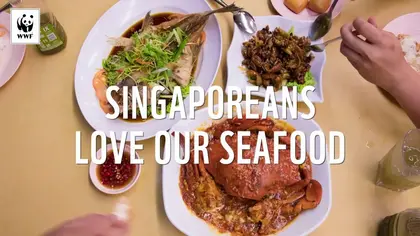Sourcing Sustainable Seafood at Marina Bay Sands - Video
In 2017, Singapore's Marina Bay Sands resort (MBS) pledged that 50% of the seafood it serves will be responsibly-sourced by 2020. But 45 million visitors per year and entrenched cultural practices could make it difficult. The CRDT sent veteran journalist Rian Maelzer to investigate.
“MBS had attempted to transition to more sustainable food options. But trying to pressure suppliers into offering sustainable options was hard. MBS was considered a large customer with some negotiating power within the hotel industry due to the size of the facilities, but hotels were comparatively small compared to the retail industry. In total, MBS purchased S$16.7 million (US$12.6 million) in seafood and S$17.9 million (US$12.8 million) in dry goods in 2017. But those numbers were dwarfed by the size of the market. Singapore imported 90% of its food needs, primarily from Malaysia, Indonesia, China, and the US. In 2015, Singaporean imports of agricultural, fish, and forestry products amounted to US$11.42 billion, including US$1.03 billion of fish and seafood products.
MBS also required that his wholesalers be large enough to maintain good relationships with a variety of producers in different countries. For example, MBS sourced about 75% of its seafood from seven to ten large suppliers, which stocked prawns, crabs, caviar, and different kinds of fish. The remainder was primarily specialty items ordered by celebrity chefs.
The demand for sustainably-sourced products in Singapore came largely from large hospitality industry players, and from MICE customers. MBS collaborated with a number of its suppliers to explore options. However, the demand for sustainable food was not significant enough for most suppliers to stock special supplies, as local consumers were less interested in the category than consumers in the United States and Western Europe. An MBS official noted,
'The wholesalers say 'hey there's no demand in the market, why are you putting pressure on me for sustainable food?' They don't feel the pressure and need for meeting what we might require… It is not very surprising to me. It's a lack of awareness on the part of Singaporean consumers. As long as they get a good quality and good price, they’re happy with it.'"
From Global Network Case #101-18 ,"Marina Bay Sands: Sustainability Challenges and Opportunities in the Events Industry," produced by the Yale School of Management and the National University of Singapore Business School for the 2018 Aspen Institute Business & Society International MBA Case Competition.




